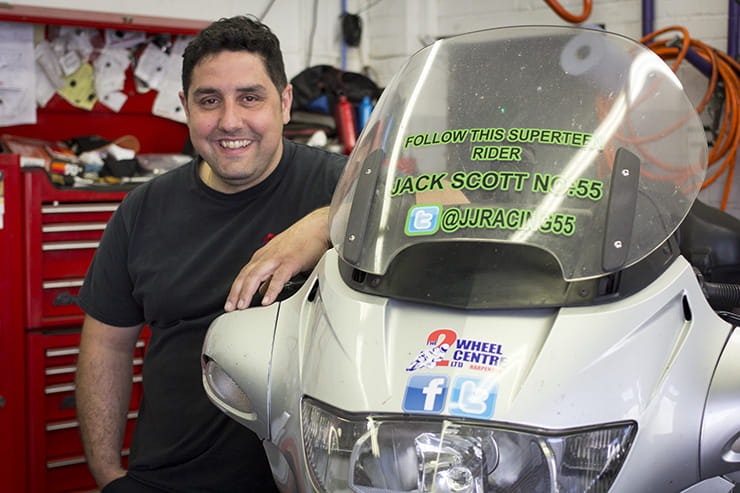Bike Maintenance: Bonneville Brakes
By John Milbank
Consumer Editor of Bennetts BikeSocial
04.07.2017
Nick Nomikos is the Sales and Service manager of The Two Wheel Centre in Harpenden. An MoT tester since 2002, he’s worked at the family-owned shop since it opened in 1991; “If drawing attention to the importance of basic bike maintenance encourages more people to keep an eye on their bikes, then we’ve won!”
What’s going on here? This Triumph Bonneville came into the workshop for a new chain and sprockets, so the rear caliper had to be removed to get the wheel out. When the caliper was turned around, the pad fell out; the top of the pad had rotted away so badly that hole for the pin had gone.
Why does it matter? While it’s very unlikely the pads would fall out while riding, if the customer took the wheel out themselves, it’d be very easy to not notice they’d dropped out, then they could refit it and ride off with very dangerous brakes…
The importance of brake maintenance
This pad should be retained in the caliper, but it’s rotted so badly that it just drops
How do we stop this happening to us? This is simply down to general maintenance – it comes back the age of parts. There’s no time limit with regards to the MoT on how long parts can be used, but it’s why manufacturer recommendations for checking and replacement should be followed. These were probably the original pads, so around ten years old, and the caliper hangs off the bottom of the swing-arm, allowing water to pour into it and accelerate the corrosion.
People choose not to acknowledge dealer/manufacture recommendations, either because they’ve not used the bike enough, or they just don’t want to spend the money on it. Or because they plan on selling it.
The scary thing is that a lot of Nick’s customers lend their friends their bikes… who’s responsible if the pad falls out when your mate is riding your poorly maintained motorcycle?
How do we fix this? A new set of pads. At Nick’s workshop, the calipers are cleaned and greased, slider operation checked, and the pads thoroughly inspected to make sure they’re in good condition.
Basic motorcycle maintenance is taught in the CBT, but a lot of riders forget about it. If you keep an eye on your bike, you can budget for any upcoming issues. As Nick says: “You should check your bike at least every month (really, before each journey). If you want to ride on a Sunday, check it on the Wednesday – put it on charge, check the tyres, chain, oil, coolant, brake fluid... If you don’t look over it, how can you be sure it hasn’t developed a leak? And keeping your bike clean is a great way to really know it inside out.”
Share on social media:
